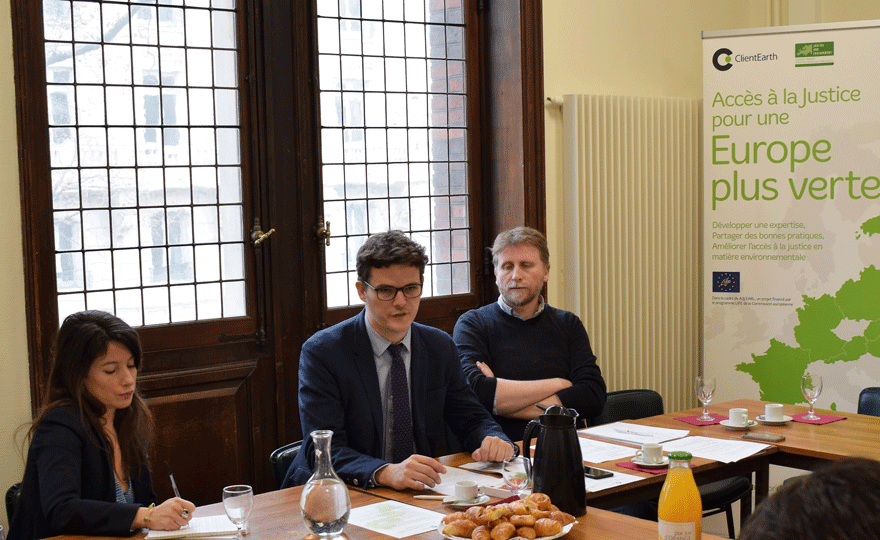ClientEarth Communications
11th April 2018


On 3 April 2018 ClientEarth held a workshop in Paris on access to justice in environmental matters.
This event was an opportunity to gather experts to assess the situation of access to justice in France, exchange views and evaluate needs for the series of discussions to take place between end 2018 and early 2020 in the framework of the ATOJ-EARL project.
Anais Berthier, ClientEarth senior lawyer and Environmental democracy project lead, presented the project, which aims at raising awareness about access to justice in environmental matters.
The participants, who recognised that the lack of knowledge about the Aarhus Convention and environmental law more broadly is still problematic in France, warmly welcomed the initiative.
Julien Bétaille, Professor at Toulouse University, and Antoine Gatet, lawyer for France Nature Environnement, provided the audience with their different perspectives on access to justice.
They all noted that legal standing, which is the possibility for citizens and NGOs to bring cases to before courts, was not really an issue in France. The vast majority of environmental cases in France are brought by NGOs like France Nature Environment.
However, they pointed out that the issue in France lies more in how legal remedies function rather than their existence.
Some important bottlenecks preventing access to justice to be truly effective in France were identified. For example, delays are often not adapted to environmental issues, being too tight to bring legal proceedings or for environmental damage to become apparent. Some regressions were underlined, particularly in city planning regulations.
More generally, environmental cases suffer from being too technical, out of reach for a vast majority of professionals who have not benefited from adequate training in environmental law. Providing training in environmental law along with access to justice to professionals could help address this problem.
The workshop is a standard component of the ATOJ EARL project in each participating country. It is an opportunity to present the basic features of the project to the respective stakeholders (judges, public authorities, lawyers and NGOs) gather information about the needs and expectations of the targeted audience and create a forum for discussion and collaboration.
The meeting was funded by the LIFE Programme of the EU as part of the ATOJ EARL project.
Access to Justice is a fundamental means through which citizens and NGOs can support the implementation and enforcement of laws and policies to protect the environment. The goal of this ATOJ-EARL project is to achieve “Access to Justice for a Greener Europe”. It strives to enhance access to justice in environmental matters by providing information, training and support for the judiciary, public authorities and lawyers of eight European member states. ClientEarth and Justice and Environment are implementing this project with the financial support of the European Commission’s LIFE instrument.
